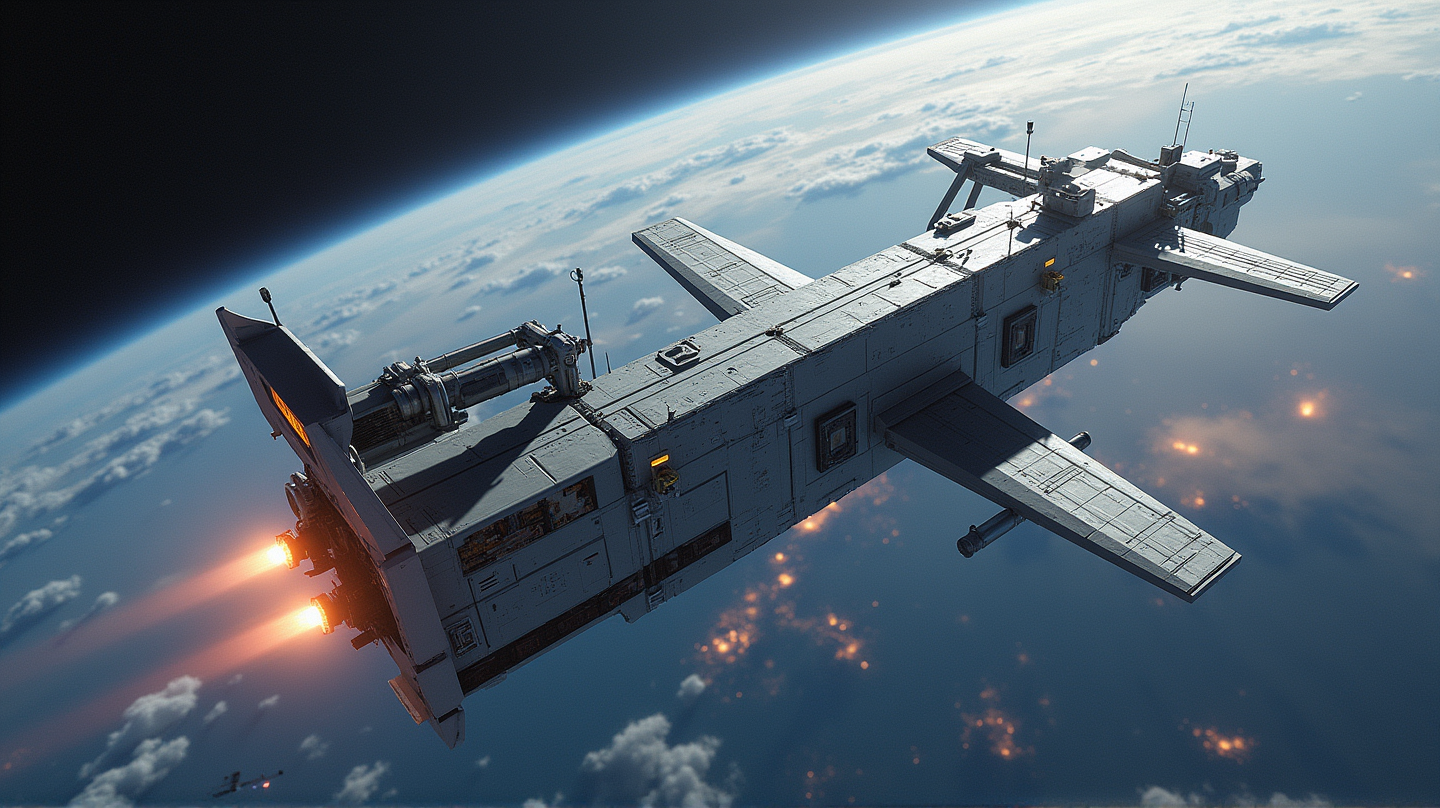Russia Leads the Space Race with Automated Orbital Technology
Discover Russia's trailblazing invention in space tech - automated spacecraft launches from a robotic orbital station, setting new exploration heights.

A Visionary Leap into the Future
Russia’s recent innovation in space technology has set a new benchmark in automated spacecraft launches. This breakthrough centers on launching drones from an orbital station, creating an unprecedented platform that’s maintained by robots. Prime Minister Denis Manturov presented this remarkable initiative to President Vladimir Putin in a public broadcast, emphasizing Russia’s dedication to advancing its space exploration capabilities.
Beyond Expectations: The Russian Orbital Station
The proposed Russian Orbital Station (ROS) is more than just a stepping stone to sustaining operations above Earth. It’s a strategic pivot that follows the eventual decommissioning of the International Space Station (ISS). Construction is projected between 2027 and 2033, with operational launch capabilities ready by 2030, reinforcing Russia’s autonomous endeavors in orbit.
Leading the Charge in Lunar Exploration
One of the most exciting components of this ambitious project is its potential application for lunar exploration. Russia’s orbital platform serves as a critical launching pad for missions aimed at unraveling the Moon’s mysteries, paving the way for potentially groundbreaking discoveries.
Robotics at the Helm: A New Dawn for Exploration
Robots will play a pivotal role in the maintenance of this orbital station, a technological feat that distinguishes it as a first of its kind globally. This innovation may significantly reduce the risks associated with human spaceflight while enhancing the efficiency and precision of space operations.
A Glimpse into the Future of Space Exploration
This project symbolizes a transformative approach in the field of space exploration. According to Devdiscourse, it promises to open new avenues for scientific enquiry and technological advancement, as countries continue to reach for the stars.
The Path Ahead: Challenges and Prospects
Although the prospects are promising, the path to realizing this futuristic vision is riddled with challenges. From ensuring the technical viability of automated systems to securing international cooperation, Russia’s space program is at the nexus of innovation and logistical complexity.
In conclusion, Russia’s breakthrough in launching automated spacecraft from an orbital station marks a pivotal moment in space exploration history, one that could redefine the possibilities of what humanity can achieve beyond our home planet.

